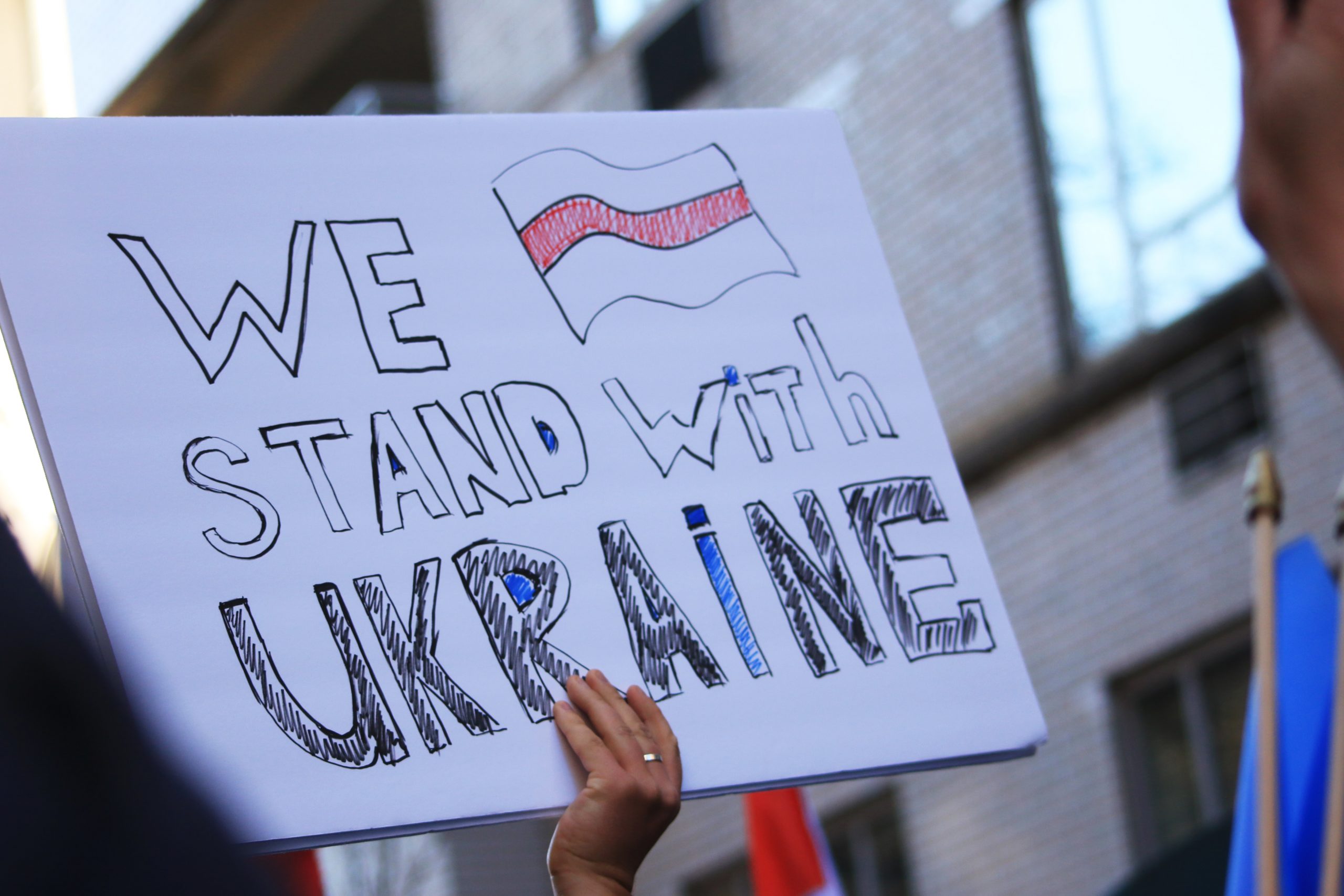Business leadership in a time of war
With greater awareness of the horrors of war, consumers are demanding positive action by businesses operating in Russia. Those that drag their feet will pay with their reputation.
The heart-breaking war in Ukraine is not only a conflict that will profoundly change geopolitics. As the most viral social media war of our times, it’s one where we are more aware of daily atrocities than any other. Technology beams a visual diary of stomach-churning reality from the frontline to our phones. From the defiant last words of Ukrainian soldier Roman Gribov as Russian battleships blew up his post on Zmiinyi Island, to daily updates from President Volodymyr Zelenskyy, there is no shelter from the horrors of war.
A war in real time
We can see for ourselves, in real time, the conditions of women and children cowering in the battered basements of Mariupol; the heartbreak of parents as their children are blown up playing football in the street or their sons lost in battle. In the face of all this, ordinary people around the world – weary of unrelenting grim news in the last two years – want to exercise power where they can.
The wheels of government can move slowly, frequently jammed by harsh, sometimes grubby realpolitik. While sanctions will take time to work through, and deals that were decades in the making are being slowly unpicked, campaigners and consumers have reacted quickly.
Businesses are fleet of foot
Airbnb offered free, short-term housing to up to 100,000 refugees fleeing Ukraine. Mobile phone networks made data, texts and calls to Ukrainian numbers free the day after the invasion. BlaBlaCar, a carpooling app and Uklon, a Ukrainian version of Uber, worked together and in the first three days of the conflict transported more than 50,000 people to western Ukraine.
Here in the UK, a coalition of more than 40 businesses contacted the UK government offering over 10,000 jobs, help with visas, housing and English lessons to refugees fleeing Ukraine to help them rebuild their lives. Organised by entrepreneur Emma Sinclair, the list includes Marks & Spencer, Asos and Lush as well as recruitment businesses Robert Walters, FDM and Impellam.
Holding businesses to account
There are plenty of organisations tracking business behaviour too – and they moved quickly, providing a level of transparency on corporate behaviour that we have never seen before. The Good Lobby has created the Ukraine Corporate Index (strapline: ‘On which side is your brand?’) which uses a traffic light system to reflect companies’ positions in Russia. It argues that ‘the fastest way to end the war is to stop trading with Russia, divest Russian assets and refuse to finance Putin’s regime’.
Yale School of Management categorises businesses with financial interests in Russia into five groups (withdrawal, suspension, scaling back, buying time, digging in) which are continually under review as the situation evolves. Its list features over 500 companies so far.
Both lists are updated regularly, based on stock market/ company announcements and social media updates. And changes are fed out to their ready-made audience on social media, including journalists, influencers and academics – all sharing the updates via their accounts.
Starbucks, McDonalds, Coca Cola and Pepsi all changed their positions quickly in the face of concerted consumer boycotts and fierce social media campaigns. As a measure of how fast businesses have been able to make major decisions, it took BP just three days to accept a potential $25billion loss by selling its stake in Russia’s state owned gas company.
Richard Edelman, CEO of Edelman, the largest PR company in the world, has warned businesses that, “geopolitics has become the new test for trust” in business. A growing number of consumers want to spend their money with brands that share their values – and businesses are waking up to this.
It’s been said that the Russian invasion has united the West. But it’s also fast uniting us all around the fact that shareholder primacy is coming to an end and that businesses have a bigger role to play in shaping the world.


